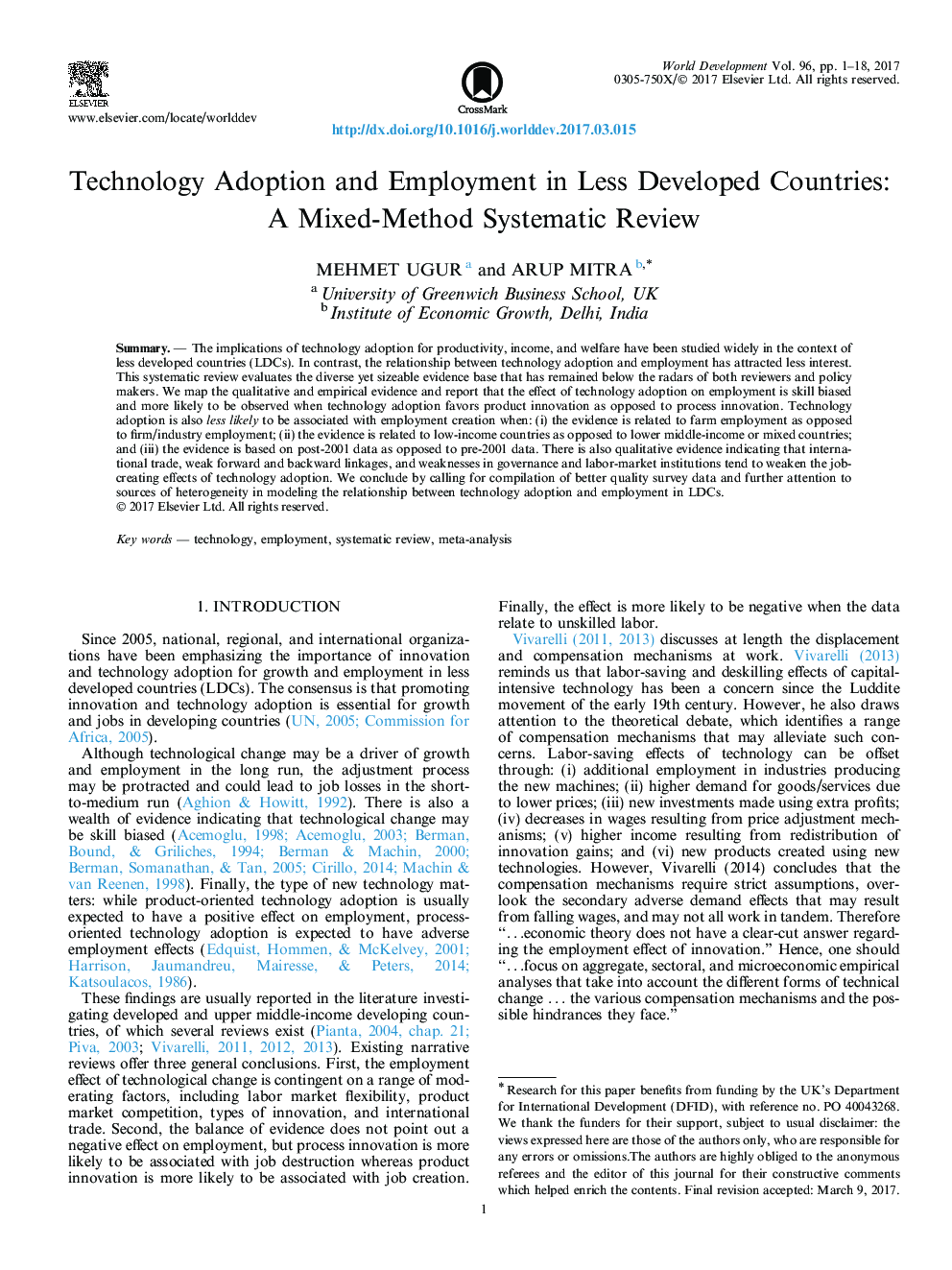| Article ID | Journal | Published Year | Pages | File Type |
|---|---|---|---|---|
| 5105044 | World Development | 2017 | 18 Pages |
Abstract
The implications of technology adoption for productivity, income, and welfare have been studied widely in the context of less developed countries (LDCs). In contrast, the relationship between technology adoption and employment has attracted less interest. This systematic review evaluates the diverse yet sizeable evidence base that has remained below the radars of both reviewers and policy makers. We map the qualitative and empirical evidence and report that the effect of technology adoption on employment is skill biased and more likely to be observed when technology adoption favors product innovation as opposed to process innovation. Technology adoption is also less likely to be associated with employment creation when: (i) the evidence is related to farm employment as opposed to firm/industry employment; (ii) the evidence is related to low-income countries as opposed to lower middle-income or mixed countries; and (iii) the evidence is based on post-2001 data as opposed to pre-2001 data. There is also qualitative evidence indicating that international trade, weak forward and backward linkages, and weaknesses in governance and labor-market institutions tend to weaken the job-creating effects of technology adoption. We conclude by calling for compilation of better quality survey data and further attention to sources of heterogeneity in modeling the relationship between technology adoption and employment in LDCs.
Related Topics
Social Sciences and Humanities
Economics, Econometrics and Finance
Economics and Econometrics
Authors
Mehmet Ugur, Arup Mitra,
